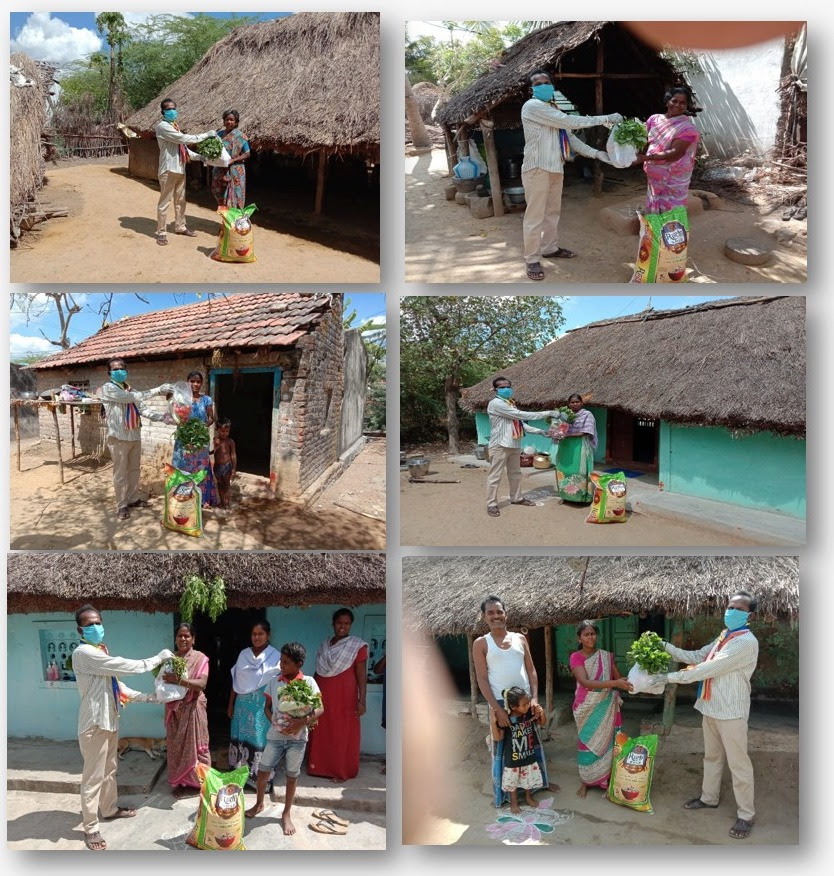The Foundation of His Sacred Majesty (FHSM), a Buddhism-inspired non-profit organization headquartered in the Indian city of Chennai (formerly Madras) in the state of Tamil Nadu, has provided an update on its recent emergency relief and rehabilitation operations to provide vital emergency aid to underprivileged and vulnerable communities living under lockdown in India during the COVID-19 pandemic.
The relief work stems from an ongoing appeal for a COVID-19 emergency relief fund set up by the FHSM to tackle the broad and significant repercussions being felt by disadvantaged communities across India.* The foundation observed that the nationwide lockdown “has brought the lives and livelihoods of 1.3 billion people to a complete standstill. India’s helpless poor are starving for food and struggling to get essential items for their survival. The harsh brunt of the coronavirus pandemic has been at its worst on children, women, and the elderly.”
The FHSM’s emergency relief fund is now being used to provide members of India’s most vulnerable and ignored communities with basic necessities such as basic personal hygiene items and food staples.

Image courtesy of FHSM
“The FHSM team has distributed one month of free food rations to 50 families of the Adi Dravidar community in Thenkodipakkam, Vannur Taluk, Villupuram District of Tamil Nadu during the COVID-19 lockdown,” FHSM president and chairman of the Tamil Buddhist Society Gauthama Prabu told Buddhistdoor Global. “These 50 families consisting of 226 members were provided with rations worth INR2,000 (US$26) each. The timely help provided by the FHSM was a very significant relief to these families, since they have been unable to work at all during this period of lockdown. So many families have been forced to subsist on inadequate daily meals. The rations donated by the FHSM should help to sustain them with proper, nutritious meals for one month until the lockdown is over.”
Named in commemoration of the Mauryan emperor Ashoka (r. c. 268–c. 232 BCE), a key figure in the propagation of Buddhism across Asia, the Foundation of His Sacred Majesty was founded in 2007 with a stated mission to: “preserve, promote, and disseminate the principles of liberty, equality, fraternity, and social justice through non-formal education, sustainable livelihood, and conservation of ecology, alternative/preventive medicines, social empowerment, social advocacy, and social development in order for the restoration of the human dignity of the poor and marginalized.” (Facebook)
The FHSM is also affiliated with the Bangok-based International Network of Engaged Buddhists, which has launched a parallel emergency fund: Mindful Action: COVID-19 Emergency Relief Fund, International Network of Engaged Buddhists (INEB)** to support vulnerable groups in regions and countries in the INEB network, specifically in South and Southeast Asia.

Image courtesy of FHSM
The government of India imposed a nationwide lockdown on 24 March as part of its strategy for containing the spread of the novel coronavirus, in the process pushing millions of poor families from vulnerable communities into destitution and debt. The lockdown has since been extended twice and is now due to end on 17 May, with the imminent possibility that the authorities may move to extend the lockdown for a third time.
“FHSM volunteers have also distributed one month of free food rations to 120 families from economically and socially disadvantaged communities in Molachur Village in Tindivanam Taluk,” Prabu related. “The roughly 500 members of these 120 families include physically challenged and pregnant women, widows, and the elderly, all of whom have received a month’s worth of rations to help them survive the lockdown.”
At the time of writing on 11 May, global confirmed SARS-CoV-2 coronavirus infections were reported to have reached 4.1 million, with 282,719 deaths so far recorded and 1.4 million recovered.*** The World Health Organization in March estimated the mortality rate from the virus at 3–4 per cent, based on incomplete and preliminary data, with the elderly and people with underlying health conditions considered most at risk. India has reported 67,161 confirmed COVID-19 cases, along with 2,212 deaths and 20,969 recovered.

Image courtesy of FHSM
“Millions of daily wage laborers cook or buy food with their earnings each day and sustain their families,” Prabu emphasized. “These vulnerable people don’t have any kind of social protection and are desperately seeking for assistance from people like you. Please kindly empathize, help, and support! We are providing basic food items such as rice, wheat flour, dal, edible oil, salt, and sugar, and primary sanitation items such as masks, gloves, hand sanitizers, and sanitary pads to the most vulnerable communities, including stranded migrant workers, Dalits, tribal communities, nomads, and the transgender community.”












